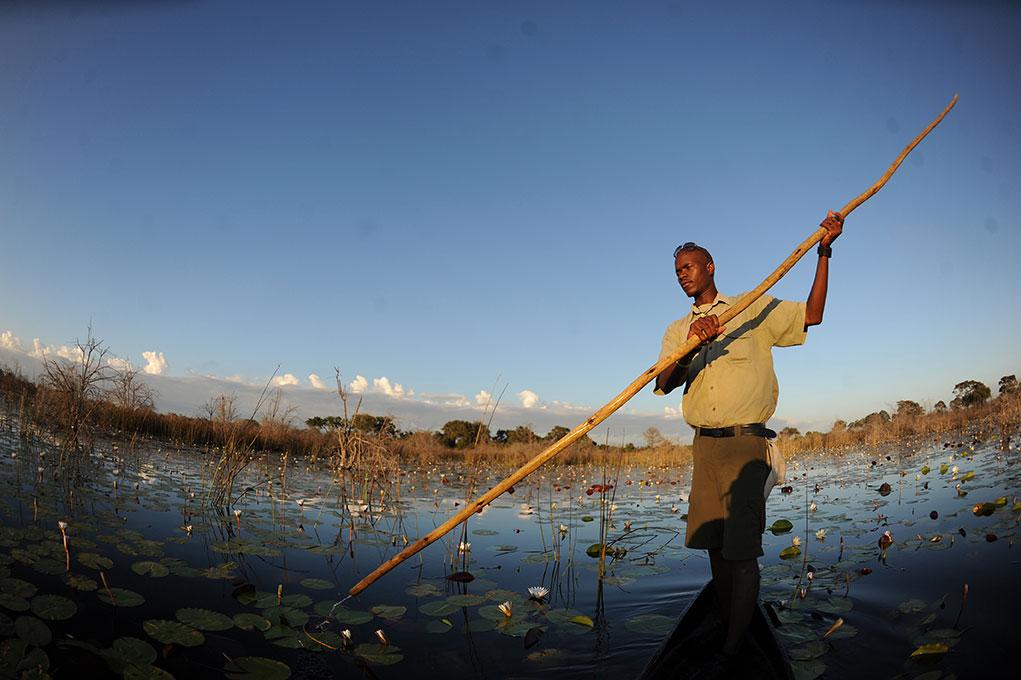Africa-Press – Botswana. Botswana is at pains to explain to UNESCO why it granted a licence for oil exploration in the iconic Okavango Delta by a Canadian mining company, documents seen by show.
In a report titled; “State of Conservation Report: Okavango Delta Heritage Site Botswana,” dated February 2022 submitted to UNESCO, Botswana acknowledged the concerns raised by the World Heritage Committee over the granting of oil exploration licence to Reconnaissance Energy Botswana (Pty) Ltd within the Okavango River basin and the potential negative impact of the Okavango Delta World Heritage Property in case of spills and pollution.
Responding to the World Heritage Committee’s concerns, Botswana informed the World Heritage Committee that the current exploration licence is out of the buffer and core zones of the Okavango Delta World Heritage Property and that of the Tsodilo Hills World Heritage Site which are within the prescribed Okavango River Basin (ORB).” Botswana added that; “Notwithstanding, the ORB is regarded as an environmentally sensitive area. Therefore, rigorous and critical Environmental Impact Assessment is a prerequisite to any intrusive development in the area.”
Botswana further committed “to ensuring and monitoring of any future prospecting and mining activities within the ORB and will continue the engagement of Angola and Namibia on the management of the shared waters of the Cubango-Okavango River Basin.”
Botswana assured the World Heritage Committee’s “that potential steps needs to be undertaken prior to the development of the oil project, including the use of new exploration techniques are subjected to a rigorous and critical prior review, that includes the conduct of a rigorous EIA, that complies to the best international standards.”
According to the report; “Such an EIA will also include a rigorous Social Impact Assessment of communities living within the confines of the Okavango Delta World Heritage Property.”
Botswana also committed itself “to avail such studies for review by IUCN before approval.”
Botswana also committed to “continue working with key stakeholders among them; Department of Environmental Affairs (DEA), Department of National Museum & Monuments (DNMM), Okavango Research Institute (ORI) to address issues and recommendations raised according to best international practices.” Botswana said, “This will be done in line with best resources governance principles of accountability, responsibility and transparency including consultation with the interested and affected communities in the area in question.
In a strongly worded report in 2021, UNESCO warned Botswana that it was concerned, “about the granting of oil exploration licenses in environmentally sensitive areas within the Okavango River basin in north-western Botswana and north-eastern Namibia that could result in potential negative impact on the property in case of spills or pollution.”
States the report, “The granting of oil exploration licenses in Botswana and Namibia is of significant concern. While the licensed areas do not overlap with the property or its buffer zone, they are situated in environmentally sensitive areas of CORB, with a potential negative impact on the property in case of spills or pollution.”
It says the areas are also important dispersal routes for elephants and other wildlife. While the current activities as described in the planning documents are not likely to have a significant direct impact on the property based on their restricted scope and location away from the property, this might be a first stage towards a larger project with significant risks to the interconnected water system of the delta and the OUV.
For More News And Analysis About Botswana Follow Africa-Press






